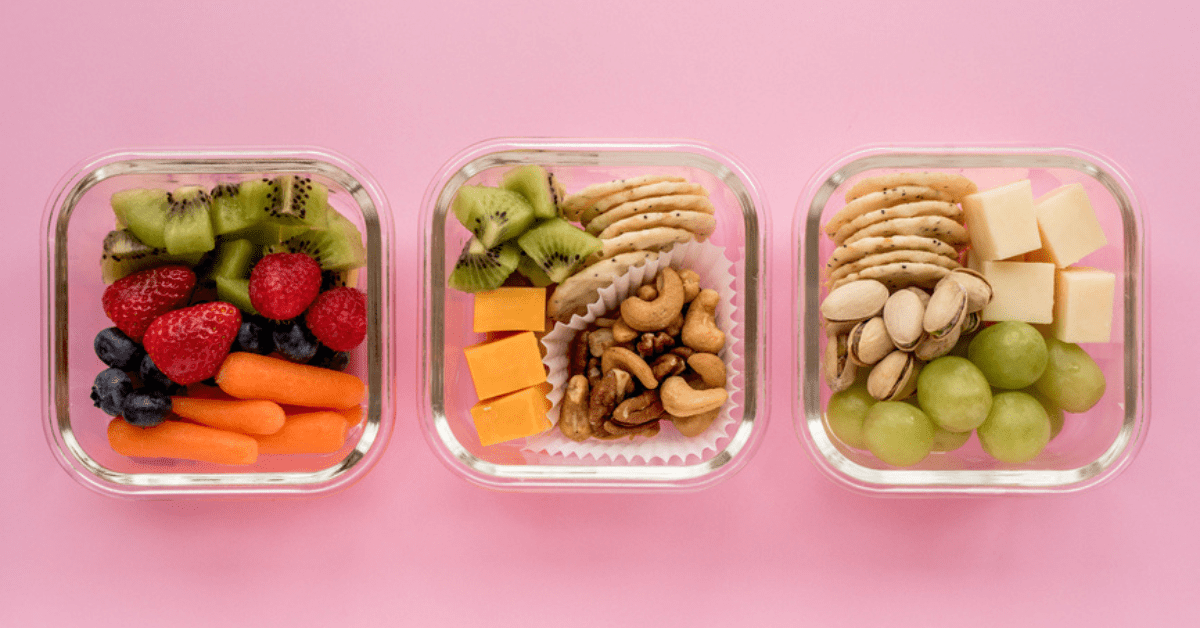Highlights | Nutrition nuggets of wisdom
- Being flexible and nonjudgmental with what and how you eat tops the list.
- Supplements are out, and frozen fruits and vegetables are in.
- It’s OK to treat yourself and enjoy food.
March is National Nutrition Month, and who better to ask about nutrition than the professionals who take care of patients’ dietary needs for a living?
UW Medicine dietitians share their favorite facts and top tips for living a more nutritious lifestyle.
Surprising nutrition facts
Did you know these dietetic facts?
Fiber has more benefits than just bowel regulation
“It is great for glucose control, lowering low-density lipoproteins (LDL) cholesterol, and weight management, to name a few. Most Americans do not meet their daily needs,” says Lola Dack, MPH, RD, CD, clinical dietitian, Food and Nutrition Services at UW Medical Center – Northwest. “Whole grains, fruits, vegetables and beans are great sources.”
There are no bad foods
“All foods can fit as part of a healthy, nutritious diet,” says Morgan Chojnacki, RDN, CDCES, Nutrition Clinic and Maternal and Infant Care Clinic, UW Medical Center – Montlake. “I genuinely want people to love and enjoy their food, to find peace with what they eat, and to find the intersection between eating all their favorite foods and meeting their health goals.”
Processed honey is nutritionally the same as regular table sugar
“People often assume honey is better for them than sugar, but if the honey is processed, they are pretty much the same thing nutritionally,” says Anna Levu Fogel, MPH, RD, CD, ambulatory dietitian, Harborview Medical Center.
When picking between the two as a sweetener, choose whichever flavor or texture profile you prefer.
Frozen fruits and vegetables are just as nutritious as fresh, if not more
“Frozen fruits and vegetables are picked at peak ripeness and frozen shortly after to preserve all the important nutrients,” says Leah Swanson, MHSc, RDN, CD, patient services manager, Food and Nutrition Services at UW Medical Center — Northwest. “Fresh fruits and vegetables are often picked before they’re ripe and are not consumed right away, which could lead to fewer nutrients.”
Food can impact mood
“What we eat has the power to impact our mood and mental health. There is a growing amount of evidence that supports the connection between food and mood,” says Mariia Byelykh, MS, RD, inpatient clinical dietitian, Clinical Nutrition Department, UW Medical Center – Montlake. “The gut is often referred to as the ‘second brain’ because it contains millions of nerve cells that communicate with the brain via the vagus nerve, connecting the gut and the brain.”
She says that dietary patterns high in fiber, omega-3 fatty acids, fruit, vegetables, legumes and whole grains may promote better mood and less stress.
Brown rice and other whole grains have the same amount of carbohydrates as more refined grains
We often equate whole grains with lower carbohydrates than their more refined grain counterparts, which is not the case, says Karen Conger, MS, RDN, CD, DCES, outpatient registered dietitian, Harborview Medical Center.
“So while whole grains do have more fiber, vitamins and minerals, they do not have less carbohydrates,” she says.
It can take 10 tries to like a new food
“The more familiar we are with a food’s smell, taste and texture, the more likely we are to enjoy it,” says Christine Stirparo, RDN, CDCES, registered dietitian and diabetes educator, UW Medicine Primary Care. “And even if we don’t completely enjoy it, that familiarity makes it easier for us to tolerate it when it shows up on our plate.”
What dietitians prioritize to stay healthy
From their personal to patient care philosophies, here’s what dietitians are doing.
Eat treats daily
“I prioritize incorporating treats into my everyday life,” says Swanson. “Food is so much more than just nourishment; it brings joy and connection and is a way to celebrate,”
Her favorite are cardamom buns from the farmers market.
Say no to food rules
Byelykh advocates for a flexible and inclusive approach to healthy eating rather than strict diets.
“This means that we encourage our patients to find a way of eating that works for them and their lifestyle rather than trying to fit into a one-size-fits-all approach,” says Byelykh. Ultimately, the goal of healthy eating is not to deprive yourself of the foods you enjoy but rather to find a way of eating that supports your health and well-being in the long term.
And Chojnacki agrees, noting she loves pizza and ice cream as much as anyone.
“Everyone panics or hesitates when being referred to a dietitian, thinking that we are going to tell them to stop eating things,” says Chojnacki. “I’m here to remind them to enjoy eating and to help them love their food.”
Food over supplements
“I like to emphasize the consumption of foods versus supplements to meet vitamin and mineral needs,” says Dack. “Supplements are usually more expensive than their food counterparts and can cause side effects like nausea, gastrointestinal upset and medication interactions.”
Micronutrients in foods are more bioavailable, meaning that the body more easily absorbs them, she explains.
“Plus, it’s much more enjoyable to eat a rainbow of foods than a handful of pills,” says Dack.
There is no good or bad — only food
“I always emphasize the importance of not categorizing foods as good or bad and never shaming people for their choices,” says Conger.
Thinking of food in such black-and-white terms can be confusing, says Stirparo. She gives the example of fruit: it could be labeled “bad” because it has sugar or “good” because it has fiber. When in reality, it’s just food.
“I think it’s freeing to let go of this mindset and have less judgment around our food choices,” says Stirparo.



